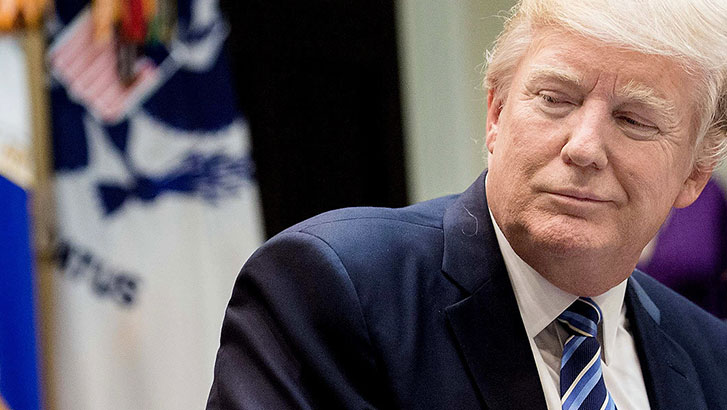Humble beginnings foster bigger changes
…Dont Leave. Please LIKE, SHARE, SUPPORT…be the voice of Independent Press
By Nazarul Islam Copy Edited By Adam Rizvi, TIO:
Malaysia’s aging Prime Minister, Mahathir Mohamed, has performed well, in bringing the leaders of Muslim nations of our world, to the doorsteps of Kuala Lumpur—in a bid to find ways, to return back to the glory days of Islamic civilization; when they ruled the world. Sounds ambitious? Yes, very much, indeed!
When nations drift as a result of rifts, compassionate others must coax and cajole them back to the fold. But smoothening the folds of national pride isn’t an easy job to perform.
Understandably, Malaysia will look back to this Kuala Lumpur Summit 2019 with pride for setting in motion— a process of ‘healing’. If bringing the more than 50 national leaders together was difficult, to keep them together will be even more challenging!

For this to happen, debates, dialogues, decisions, and declarations must be turned into actions. What issues afflict this divided world? Sultan Nazrin Muizzuddin Shah, the deputy Yang di-Pertuan Agong, who closed the four-day summit, offered three in his royal address: prosperity, planet, and people. Like the wider world, Muslim countries have a prosperity problem.
The latter make up a quarter of the world’s population but contribute only five percent to the world’s gross domestic product. The Muslims, too, have the one percent problem. The distribution of wealth could be better. As for the planet, there appears to be a disconnect between man and the Earth. Better stewardship of the Earth will surely help.
As for the people, as highlighted by Sultan Nazrin, the stateless can do with our help. The world has 26.0 million refugees, of whom 10 million are from Muslim-majority nations. Bombs and bullets have made them stateless. We quote: ‘Millions, including children, women and the elderly, face shocking abuse, suffering, and deprivation’.
And a royal question needs answering by the KL Summit: ‘How can we use the progress that we continue to make in the areas of development and national sovereignty to help the desperately needy beyond our own borders, to give homes to the homeless, and voices to the voiceless?’
Muslim nations aren’t doing enough, he opines. We agree. There are more than 50 Muslim countries in the world, but only a familiar few are hosting them. Magnanimity has seen better days.
Heartbreaking stories there were aplenty.
Also, Read: A Muslim’s Right to live in India!
Consider the three, shared by Sultan Nazrin. First, a Syrian pang: we will tell our children that Syrian migrants fled their country to go to Europe when Makkah and Muslim lands were closer to them.
Second, another Syrian sorrow comparing German Chancellor Angela Merkel to the Abyssinian Christian King Negus, who famously sheltered Muslim refugees during their first Hijrah migration in the time of Prophet Muhammad (p.b.u.h.). And finally a heartbreaking image of Alan Kurdi, the 3-year-old Syrian boy of Kurdish origin who drowned as he and his family attempted to cross the Mediterranean Sea as refugees were fleeing to Europe. Did we abandon them?
Regrettably, the answer has to be a “yes”. We may have left them stateless in a crowded world when all they needed were ‘homes and hope’. And now…I need to move on…forward!
Let a catastrophe, big or small, befall the Muslim ‘Ummah’ anywhere in the world; the reactions would be spontaneous, and largely stereotypical—a near, hysterical response, claiming that the ‘calamity could have been avoided’, had the Muslim nations, remained united.

Amidst the hypocrisy exhibited in many similar endeavors in the past, the Muslim leaders have managed only to draw glamorously, an image of ‘unity’—projected at the hour, when the Muslim countries were embroiled in their own discord. Obviously, such failures have taught us that success is unlikely to emerge, from huge gatherings, unless backed by their sincere intent to produce desired outcomes!
The Kuala Lumpur Summit, 2019 does constitute a lesson— learned from past failures of Muslims, in holding mammoth gatherings and organizing joint protests; seemingly ending up with very ‘bold’ declarations.
Obviously, what was witnessed in the KL Summit 2019, was certainly not the image of a huge Organisation of Islamic Cooperation (OIC) that had gathered together at KL, with a sacred agenda. Prime Minister Tun Dr. Mahathir Mohamad had already stated earlier, that the summit intended to make no tall claims, in the colorful, opening session.
Also, Read: RSS backed BJP Govt. builds its First Detention Camp for illegals, some workers fear detention there
However, in terms of the wishful brand of ‘Islamic’ public-opinion, this summit was regarded to be more promising in terms of than many of the previous OIC gatherings. What had rendered the summit promising, was the serious and sincere intent to do something, which others had failed to do in the past.
During the 74th United Nations General Assembly, session held in September, this year—the trilateral meeting between the leaders of Turkey, Malaysia, Bangladesh and Pakistan, and the joint projects proposed subsequently, afterward—probably witnessed the sowing of the seeds of this typical gathering in Malaysia. The outcomes were predictable, even if the venue had been elsewhere in Tehran or Istanbul…or anywhere else!
The fact that the summit drew considerable attention — along with criticism from some Muslims — even before the summit had commenced, was indeed a sign that the auspicious gathering of Muslim leaders, contained the potential to trigger real changes in the divided, and broken Islamic world. That is why some major players (powers) among the Muslims, who seem to be contented with the status quo of the ummah, had refused to take part in this gathering.
Be it known that originally, the summit was to have been pioneered by Malaysia, Turkey, Pakistan, Qatar, and Indonesia.
Yet, last moment changes of hearts or minds by Pakistan and Indonesia just ‘happened’, which led to unexpectedly high-level participation by Iran.
Eventually, the leaders of four participant nations made a substantial difference, in addressing the key and less than major issues of the Muslim world. Turkish President Recep Tayyip Erdogan emphasized once more that the five permanent Security Council members of the United Nations no longer have the authority to determine the fate of Muslims, saying that ‘the world is bigger than five.’
Apart from suggesting a new and more peaceful world order, he also underlined the inadequacy of the Islamic world to remedy the plight of the Palestinians or offer a possible solution to the unfortunate reality of sectarian divisions, cutting deep into the Muslim Ummah. It was indeed an implicit message to the Muslim world that had also suggested some serious changes in approach.
Making no compromise on his realism, Dr. Mahathir explicitly talked about the facts of the Muslim world, referring to the mistakes, shortcomings, and inefficiencies of followers. He also gave a reminder of the lost and golden age of Muslims when they were regarded as the best models in science, technology, and art, and further stressed that Muslims have no other way but to work hard, study science and produce quality, if they want to rebuild the ‘Great Islamic Civilization’.
Qatar’s Emir Sheikh Tamim Hamad Al Thani lamented about the defects of Muslims just like Dr. Mahathir, who had blamed some “Islamic” regimes that exploited religion, disregarded human rights and caused fragmentation, in the Ummah, at large.
He demonstrated once more that Qatar will not follow the attempts by other Gulf nations, to isolate Iran. The Iranian President Hassan Rouhani put forward similar points along with a significant proposal to initiate a Muslim cryptocurrency as a game-changer in the face of the US dollar’s monopoly.
Also, Read: Watching India Crumble: A Note To My NRI Friends
 To sum it up— what we observe from the speeches and the outcomes of the KL Summit is that quality of performance shall really matter, in order for the Islamic world, to make changes, put forth by Dr. Mahathir, repeatedly. This has been a small but meaningful start by a few nations.
To sum it up— what we observe from the speeches and the outcomes of the KL Summit is that quality of performance shall really matter, in order for the Islamic world, to make changes, put forth by Dr. Mahathir, repeatedly. This has been a small but meaningful start by a few nations.Perhaps, for maintenance of a sense of unity, differences in the global community of Muslims were highlighted and discussions on key issues that needed to be talked about were, hurriedly bypassed.
The main focus here was the pressing need to overcome the underdevelopment in the Muslim world and the revive the Islamic civilisation by any means.
Such a spirit produced very good initiatives from the participants. The agreement between Turkey and Malaysia to establish a communication center that would aim to combat global Islamophobia is prominent among those.
Again, the proposed formation of a center of excellence in scientific and technological research is also an additional, tangible solution, while the agreements between Turkey and Malaysia in the fields of science and defense are among the constructive outcomes of this KL-summit.
Finally, summarizing what the KL Summit would project to the Muslim world—would take shape from the unforgettable remarks of Dr. Mahathir on the joint TV channel project by Turkey-Malaysia-Pakistan: ‘This special TV channel is a move to do things instead of just making a declaration and forgetting about it.’
I have a strong feeling the KL-Summit achieved much more than what was hoped. This was just a humble beginning. Rather than declaring some assertive statements, condemnations and proposals — soon to be forgotten — these few nations decided to do something tangible for the betterment of the Muslims spread around our planet.
What the Muslim Ummah needs today is a sense of ownership of common Islamic values—and a belief that unity among Muslims, is the biggest challenge that needs to be overcome!
Also, Read: India is Entering a New Dark Age
By Nazarul Islam




